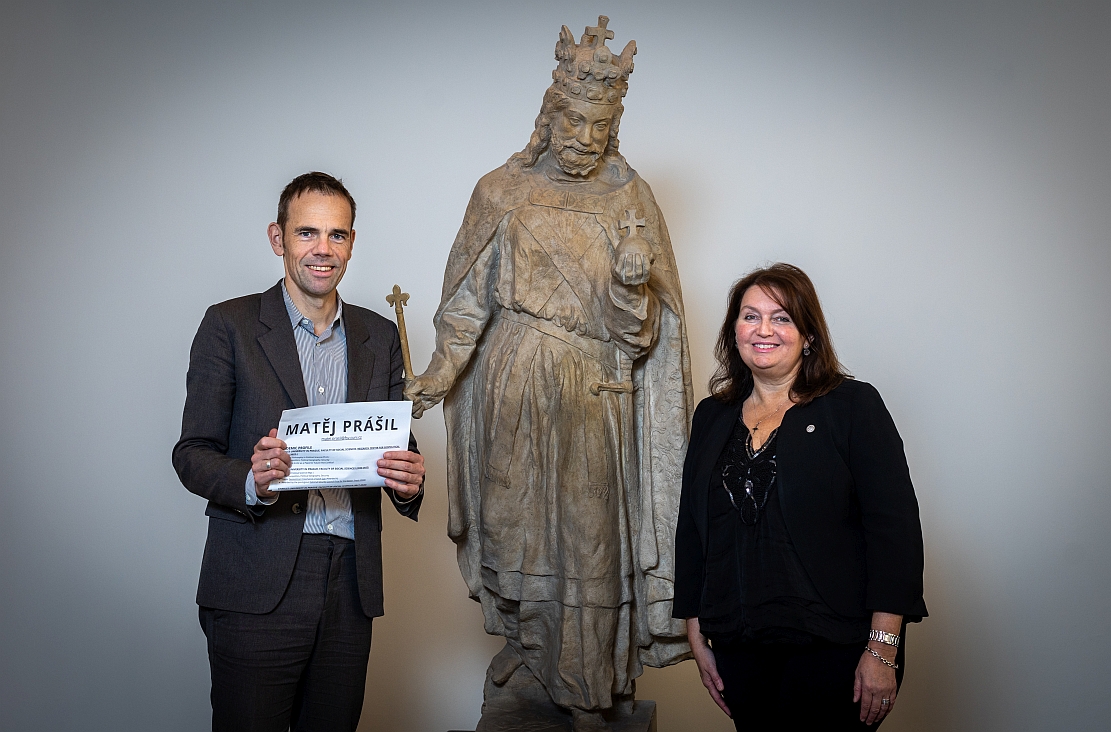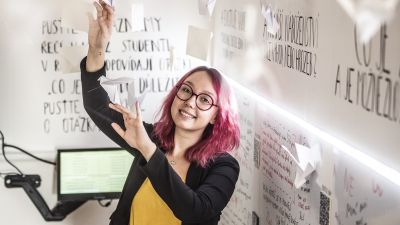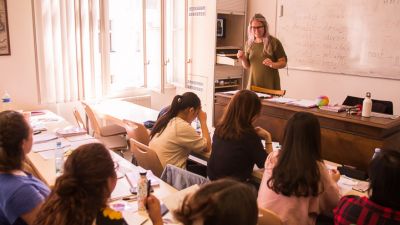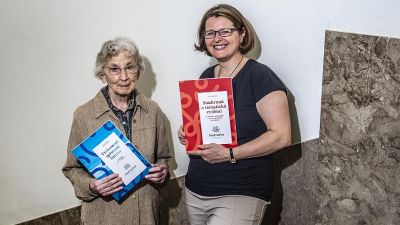(Official announcement) November 20, 2023 Charles University and the Brussels Institute for Geopolitics (BIG) are happy to announce the winner of the prestigious 2023 Essay Prize. Following a competitive selection process, the award goes to Matěj Prášil from the Faculty of Social Sciences of Charles University.
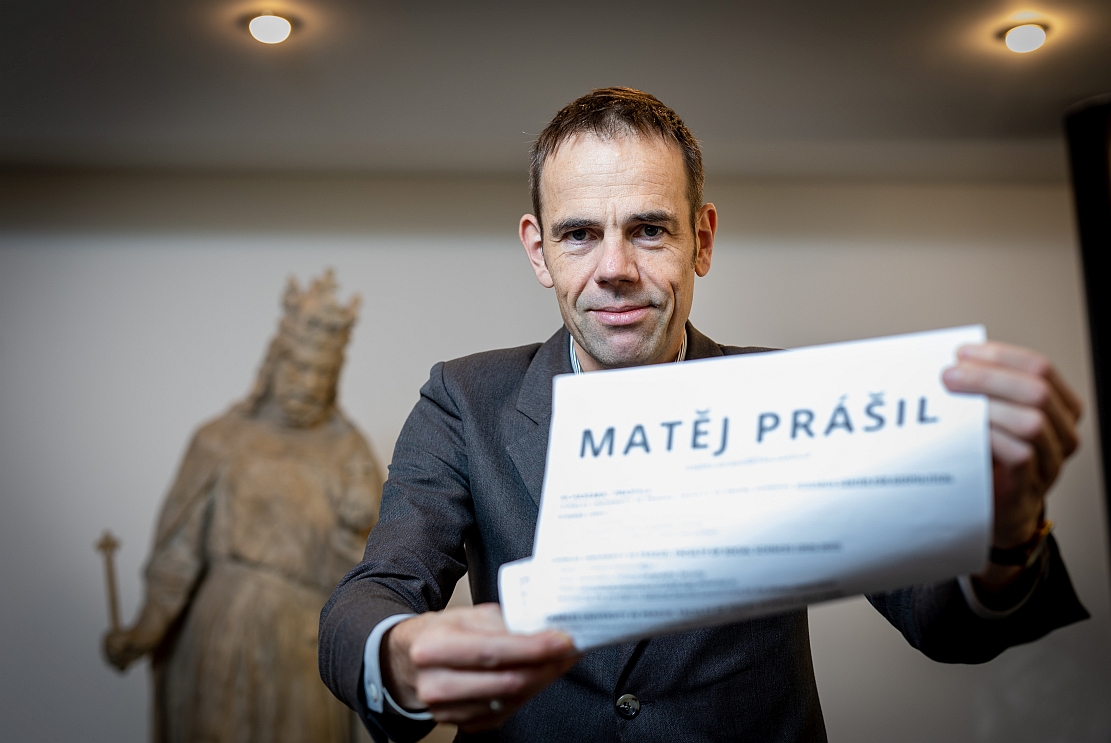
Brussels Institute for Geopolitics founder Luuk van Middelaar with the winning entry.
Mr Prášil was awarded the honour for his outstanding essay on the question Which partners in the ‘Global South’ are the most strategic for the European Union and why? He will now have the unique opportunity to spend six months as a research assistant at the Brussels Institute for Geopolitics.
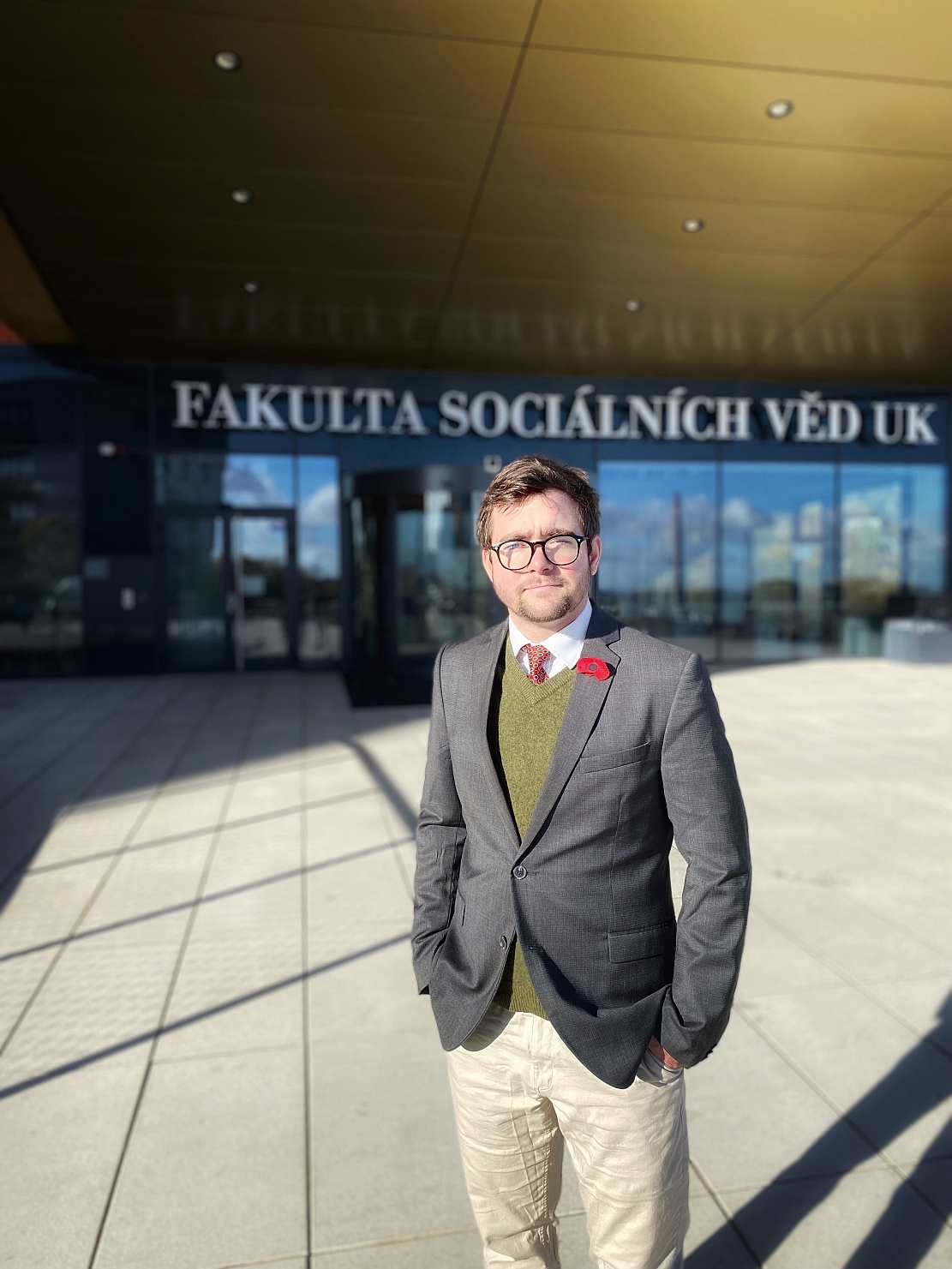 Matěj Prášil - the winner of the 2023 Essay Prize.
Matěj Prášil - the winner of the 2023 Essay Prize.
The selected winner not only demonstrated exceptional academic prowess but also exhibited a deep commitment to the field of geopolitics and European affairs. Their contributions are expected to significantly enrich the ongoing research projects at the Brussels Institute for Geopolitics. During the stay as a research assistant at BIG, the winner will work under the guidance of lead researchers and contribute to major projects within the think tank. He will have the opportunity to participate in activities such as publication development, event organization, and engagement in high-level meetings. This experience will provide invaluable professional growth and exposure to the inner workings of a renowned think tank.
The Brussels Institute for Geopolitics and Charles University Prague partnership is dedicated to education of talents and fostering a diverse and multicultural environment. This initiative aims to prepare young professionals for careers in EU affairs and equip them with a comprehensive understanding of geopolitical challenges. The Brussels Institute for Geopolitics congratulates the winner of the essay competition and looks forward to welcoming them as a valuable addition to its team.
Forum magazine spoke with BIG founder Luuk van Middelaar about the aim of the think-tank and the winner's stay in Brussels.
Forum: On your webpage you mention that ‘geopolitics is back’. We are again in a situation where developments are coming at a rapid pace it seems.
Geopolitics is more than just a buzzword, even though it is also that: when she took up her post in the EC, President Von der Leyen said it was going to be a geopolitical commission. It is also more than a buzzword when we are entering a new period of history that will be shaped greatly again by power politics, the US and China in particular, but also as we see also by war in Ukraine and turmoil in the Middle East. Not all of that is new, unfortunately, but in a way for the EU it is. The EU was built after the war in the hope of creating exactly the opposite of geopolitics where achieving your aims through power is central and not just principles and law, and also has to do with geographic territory. On the map, who your neighbours are, all of that is relevant.
The EU is not NATO which is used to thinking about collective defence. The old-style EU thinking was that it was not about power at all – or pretending it wasn’t about power – but about a more universal view about the planet, international organisations, and the approach that it didn’t matter where you are. As a think-tank we want to accelerate the strategic wake-up of policy makers and the wider public to come to terms with the new age.
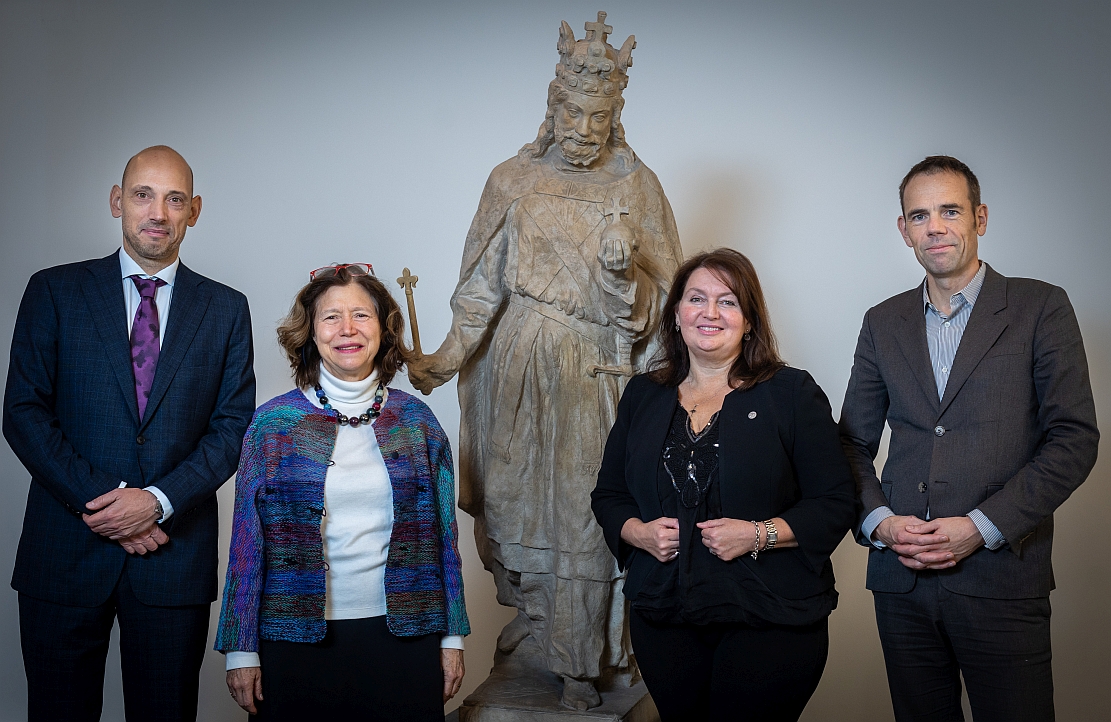
Members of Charles University top management including Rector Milena Králíčková (right of Charles IV statue) next to Luuk van Middelaar of BIG.
If we focus on the Essay Prize question that Matěj Prášil answered, it dived right into the shifting realities where old alliances no longer necessarily apply, asking pertinently which countries from the Global South the EU should seek as partners. What was striking about his answer?
He looked critically at the concept of the Global South per se: it is not a homogenous group of countries of course, but he explored further which interests they share. India and China are different in many aspects, for example, but both challenge the western order or perhaps the US-led world order, each in their own way. He debated that and selected as potential partners Nigeria and Kazakhstan. The countries of central Asia take on a new importance in the face of the current situation with Russia.
The idea is of course that he, as well as the Portuguese colleague also awarded the chance to work with us six months, will get to know the Brussels ecosystem and see what’s going on and gather information to feed into new work. Hopefully, towards the end of his stay he will publish an article on our website for instance - part, still, of the learning trajectory. Publishing will be a nice achievement and the standards we set are high. He has a strong interest in geopolitics and we are happy to have him.
It is well-known by now but still: one of the most important things about being a student and researcher is the chance to go abroad…
It is very important to get experience abroad. I was an Erasmus student myself… let’s not mention how long ago (laughs). The experience students bring back to Charles University [will be valuable]. We are just at the beginning but next year we hope that even more people will compete in the Essay Prize and we look forward to building on that.


